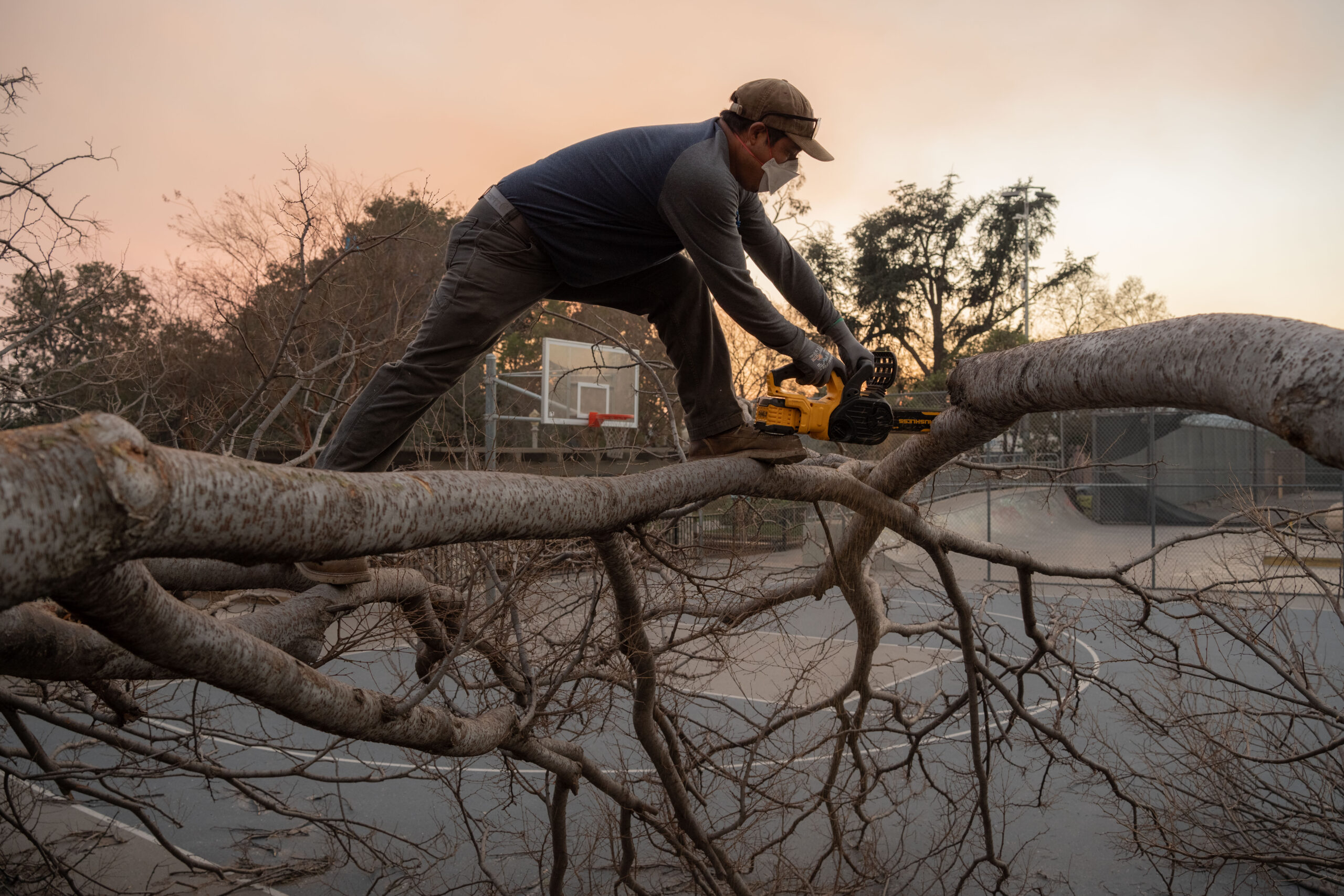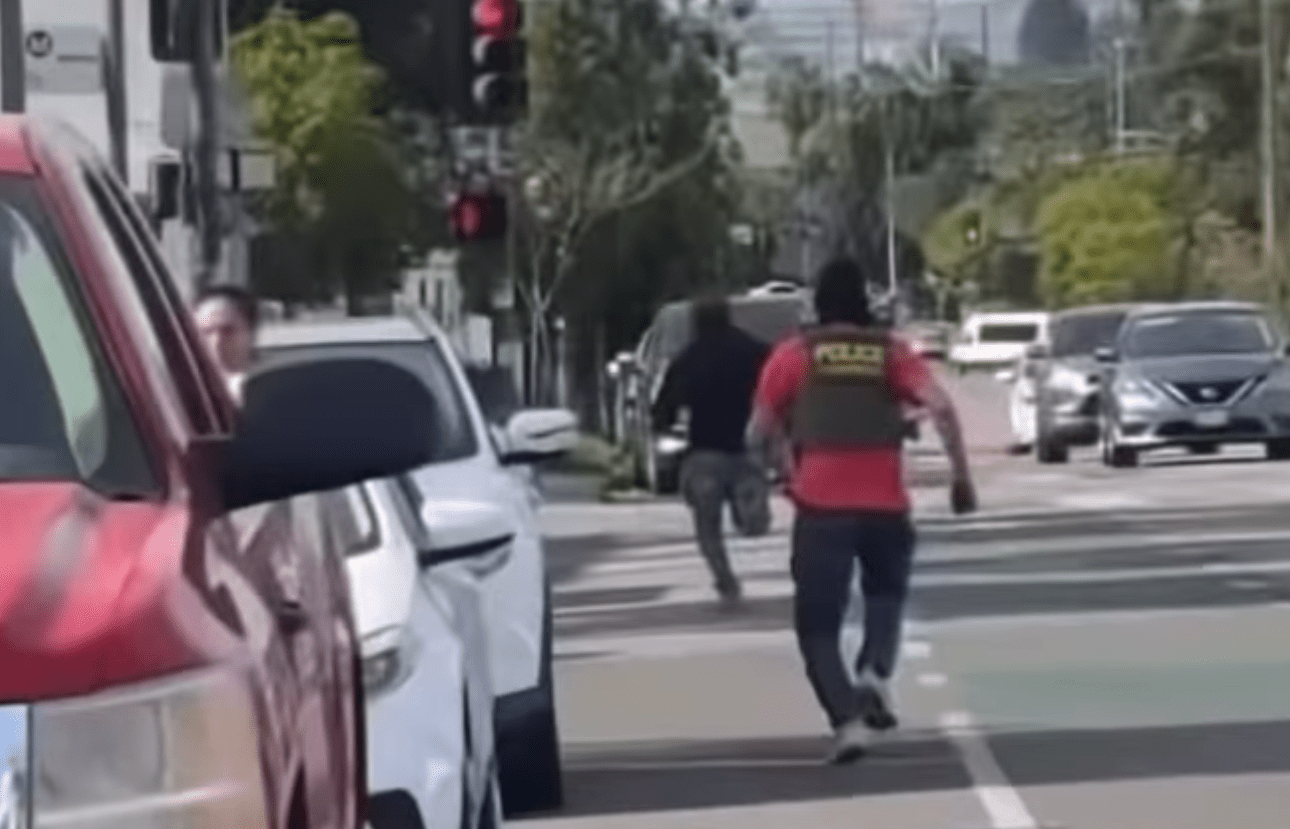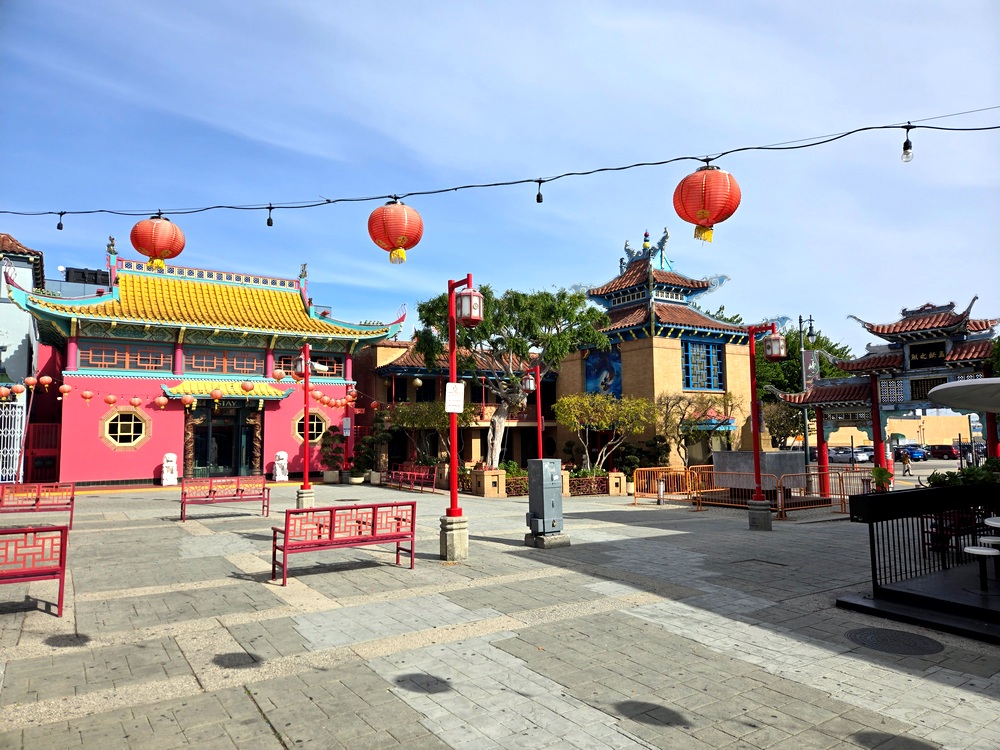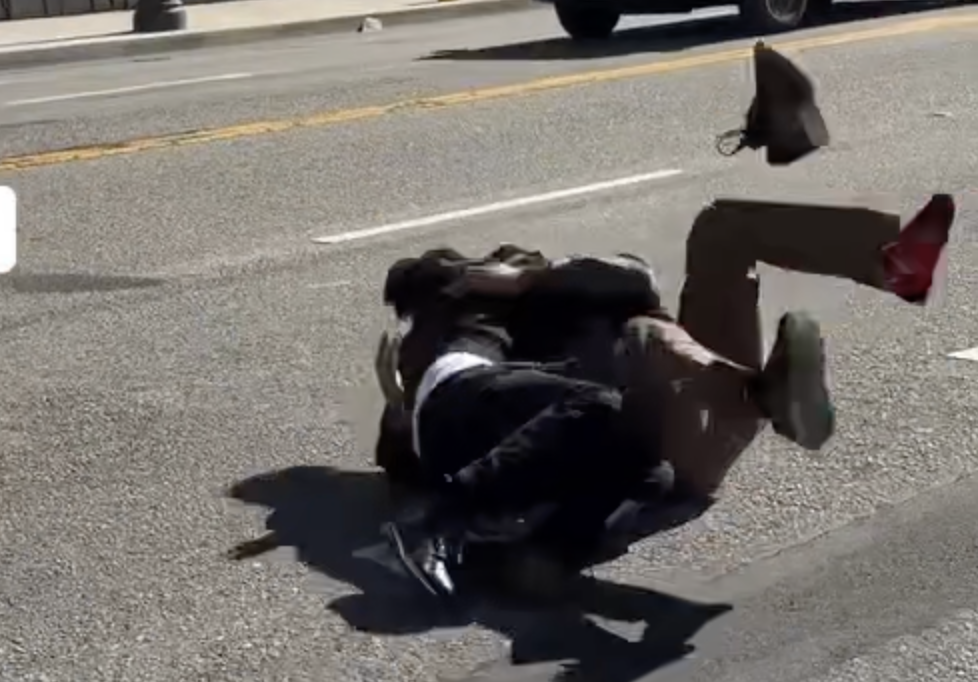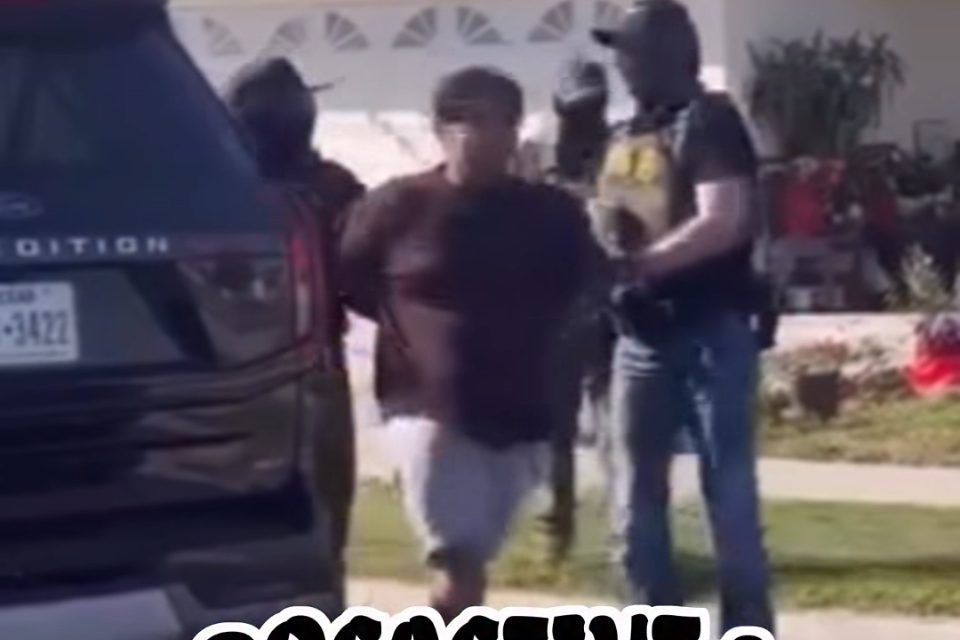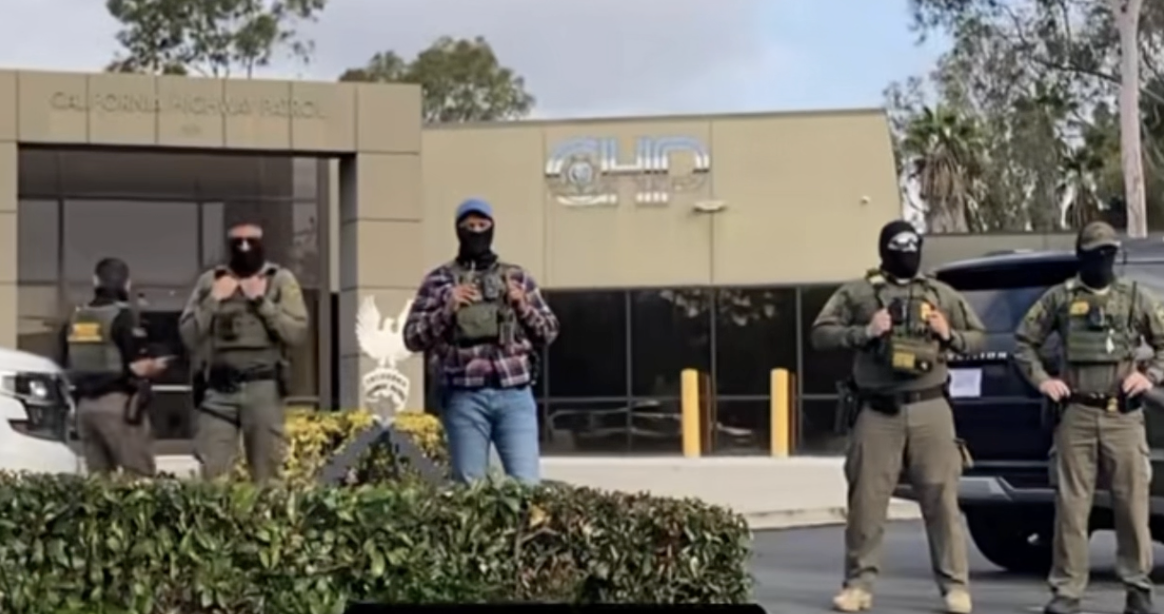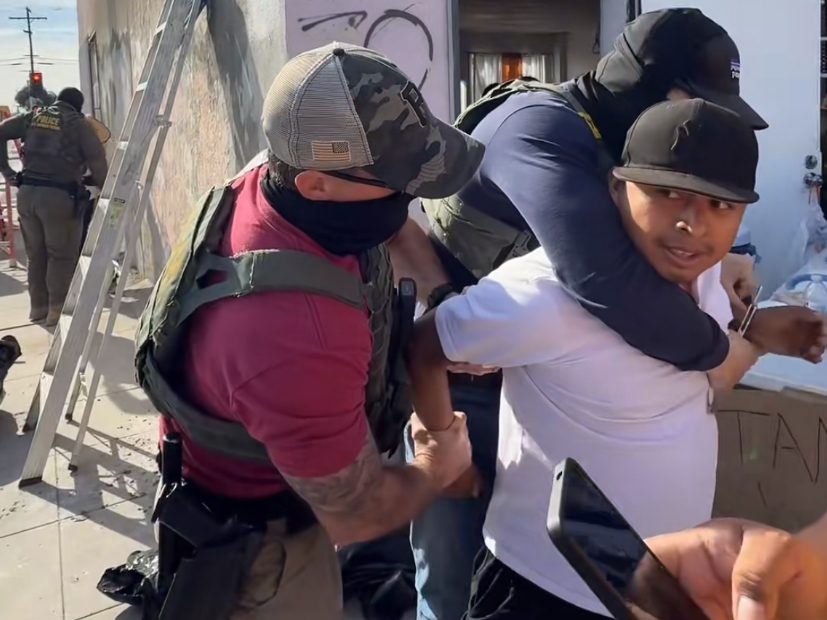This story was originally published by Capital & Main.
Two days after a massive fire broke out in nearby Eaton Canyon, dozens of volunteers gathered at the Pasadena Community Job Center. The center, which connects immigrant day laborers with work in construction, painting and other manual trades, became the starting point for an effort to clear fallen trees blocking sidewalks and roadways in a nearby predominantly immigrant neighborhood.
As José Madera, the center’s director, gave instructions, he also had a message to share: As the climate crisis contributes to bigger disasters, immigrant communities must pull together to support one another. “Only the community saves the community,” said Madera, who would repeat that mantra throughout the day. “A lot of undocumented families will not get the support they need from FEMA [the Federal Emergency Management Agency] and the government.”
On Jan. 7, the Eaton Fire ignited in the mountains overlooking Pasadena and nearby Altadena, sending evacuation alerts to phones across the region. Aided by hurricane-force winds, the fire damaged or destroyed almost 7,000 structures and killed at least 24 people. Madera, who was born and raised in Pasadena, was forced to evacuate his family. “They had to evacuate twice, because the fire spread,” he told me.
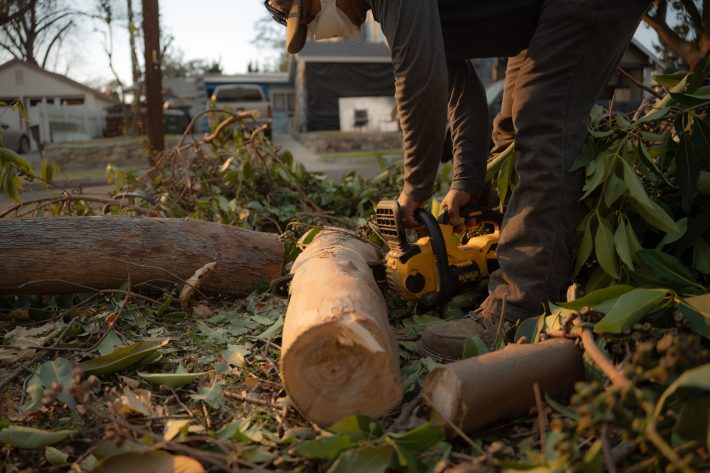
Douglas Kauffman, a teacher who answered the call for volunteers, raked up branches.
“This is a catastrophe of historic proportions,” he told me. “You see that the local government bodies were not prepared to deal with a crisis like this.”
He compared the unprecedented Los Angeles wildfires to other climate disasters that have occurred in the U.S., including Hurricane Katrina, the Lahaina, Hawaii, wildfire and Hurricane Helene. He said government agencies failed to adequately respond to these disasters.
“What’s happening in Los Angeles is very similar to what’s happened repeatedly with natural disasters and crises throughout the United States,” he said. “The destruction is widespread, and as people, we’re able to come together in a different way than the government — and unfortunately, we have to.”
* * *
Madera emerged from the van carrying a heavy case of water bottles on his shoulder intended for volunteers. “Water? Water?” he called out to them. Some residents of the area were advised not to drink the water due to potential contamination from wildfire ash and debris.
Madera’s family migrated from Mexico, and has lived in Pasadena for decades. He told me that many of his family members are undocumented and cannot easily access aid.
The fire burned a supermarket in Altadena, where Madera said undocumented people worked. “They’re out of work now. …And undocumented people don’t receive any unemployment benefits,” he said. “How are they going to provide for their families? How are they going to pay rent? How are they going to buy food?”
Families who lost everything have turned to the job center, Madera said. Earlier on Thursday, a mother, father and their two kids arrived looking for help. Their home was destroyed by the fire and they were sleeping in their car.
“They didn’t know what to do, where to go. Because, again, this is unprecedented. You don’t know what to do. Especially families who are usually excluded, which is usually working-class families, undocumented families — always excluded from benefits, from resources, [and they face] language barriers,” Madera said.
“That is very sad, but very telling about the confidence that people have in their elected officials or governments. If a disaster happens like this and people don’t know what to do or where to go, it’s telling what is the priority of a city or the priorities of elected officials, if a family with two kids doesn’t know where to go,” he said.
Local businesses have stepped forward to help during the emergency, with Planet Fitness offering free access to showers and some hotels offering discounted rooms. The nearby Pasadena Convention Center is offering shelter for those displaced by the fire.
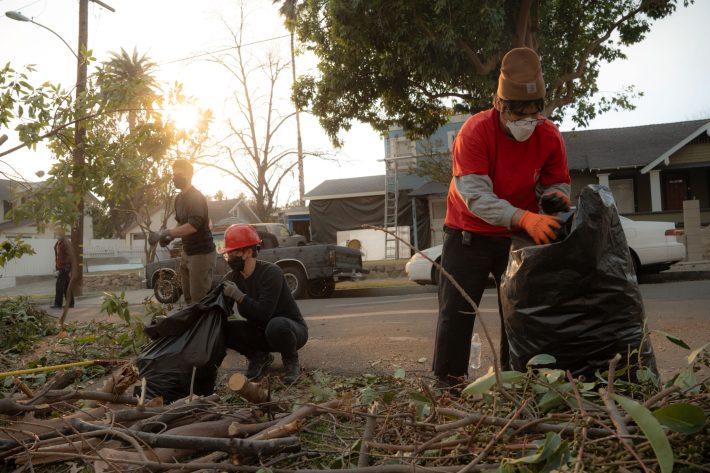
But Madera emphasized the importance of outreach efforts tailored to the community. “At the job center, something we always say is, ‘Solo el pueblo salva al pueblo’ — only the community saves the community — because we strongly believe the community knows the community,” Madera said.
Suddenly, alarms sounded from the phones in the volunteers’ pockets. The group received an emergency alert to evacuate immediately. They looked up at one another, confused. Minutes later, a second alert told them to disregard the first. It was a mistake. County officials have since apologized for a series of mistaken emergency alerts that urged residents across Los Angeles to prepare for evacuation.
“Getting these alerts is telling the reality that this is still happening, the fires have not finished, this disaster has not finished, and we need to take precaution and be safe and protect ourselves,” Madera told me.
* * *
Bernardo Pedro, who lives 10 miles away in the Los Angeles neighborhood of Echo Park, brought the chainsaw he uses in his yard. He spotted a tree that was split in half by the high winds and had collapsed onto a basketball court. Pedro marched over, climbed into its branches and started up his chainsaw.
He refused to take a break, but finally, as dusk fell, he paused to tell me that he often hikes in the nearby mountains with his husky. “I have family living here. My wife’s sister lives three or four blocks from here,” he said.
He was determined to volunteer, although his wife pushed back on the idea. “My wife, she has asthma, so she doesn’t come out. She actually told me, ‘Why are you going to go? Why do you want to expose yourself to many chemicals in the air?’”
He told her that he felt compelled to help the community. “We have to love each other and help each other. That’s the main thing we have to do in these disasters.”
“We need to support each other. If we don’t do it, nobody’s going to do it,” he said through his N-95 mask.
All photos by Jeremy Lindenfeld.
Copyright 2025 Capital & Main.
